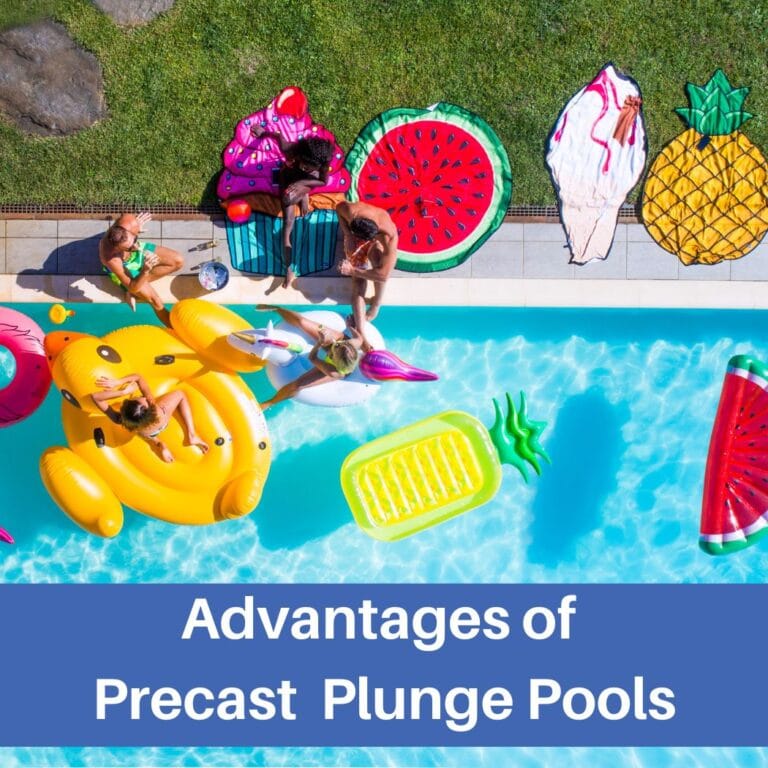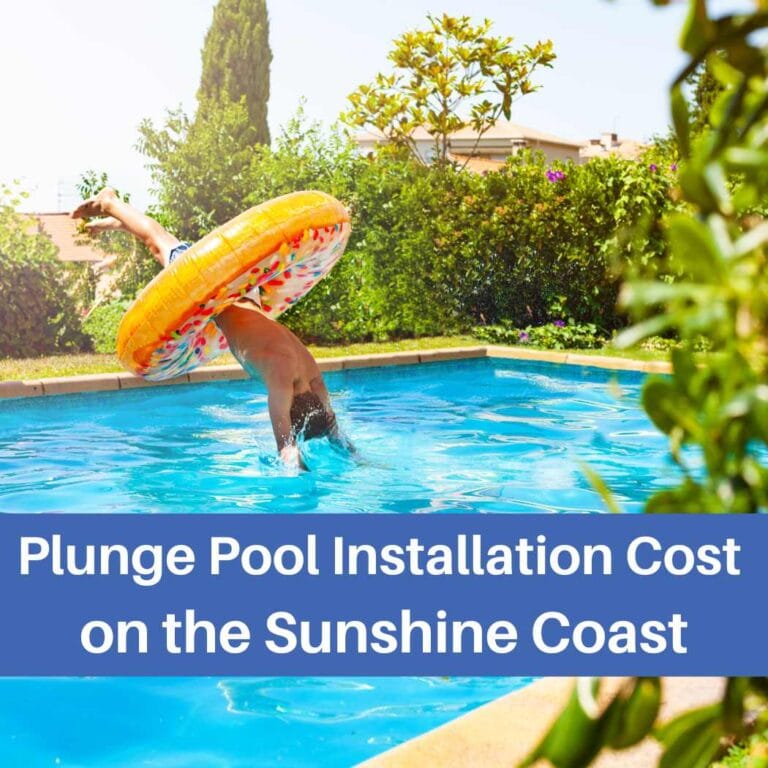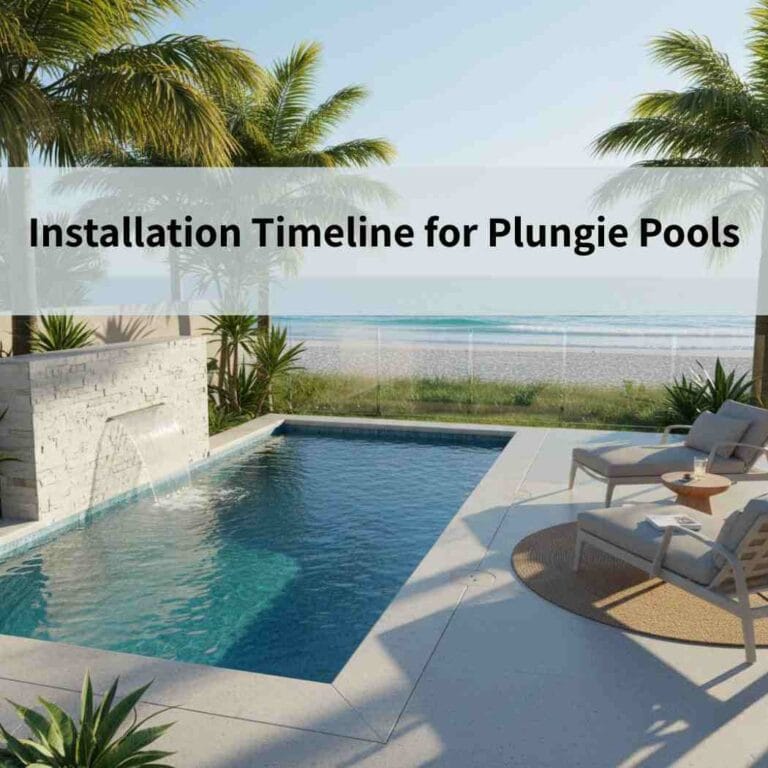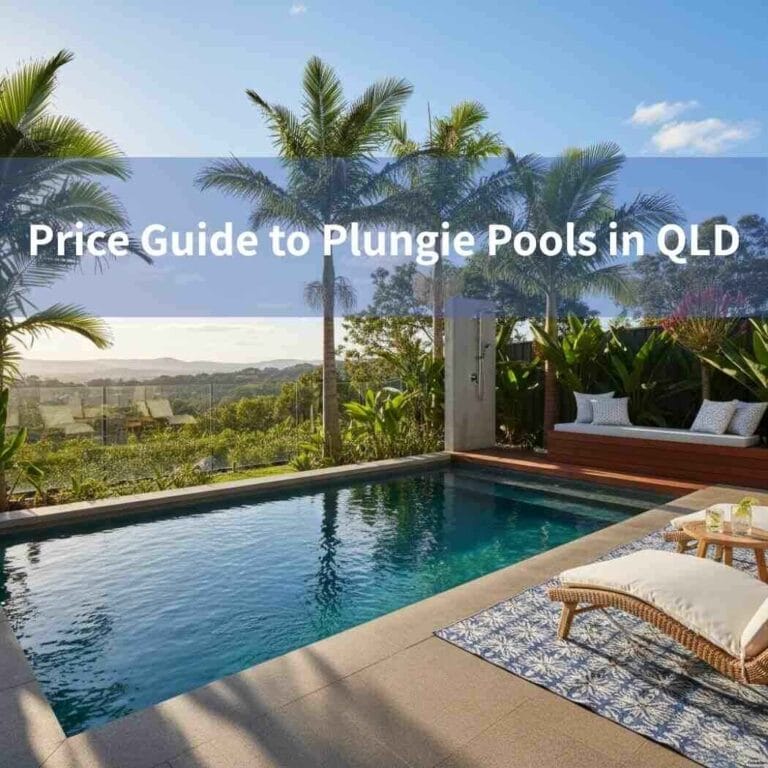At Plunge Pools Sunshine Coast, we design, supply and install high-quality fibreglass plunge pools made for local coastal conditions. Our team understands the region’s sandy soils, council rules and humid climate, so every pool we build is strong, compliant and built to last.
In this guide, you’ll learn what to look for before buying a fibreglass plunge pool, from material strength and installation quality to after-sales care and local tips, so you can make a confident, stress-free decision.
Table of Contents
ToggleUnderstand What Makes a Quality Fibreglass Plunge Pool
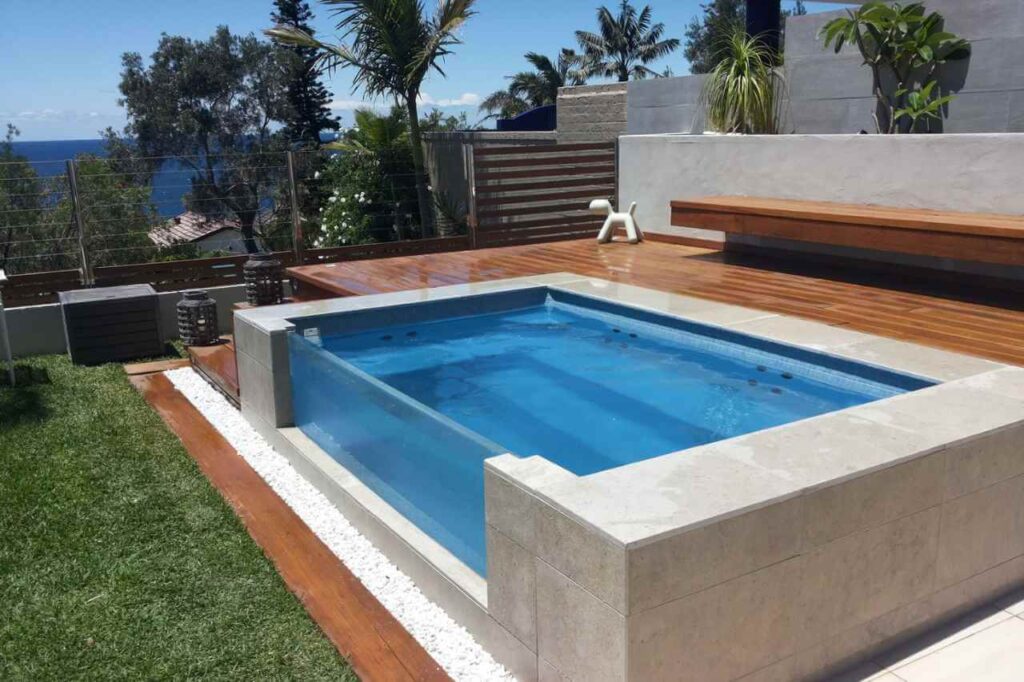
A quality fibreglass plunge pool has a thick, strong shell made with marine-grade gelcoat that resists cracking, fading and saltwater damage. It should also meet Australian Standard AS/NZS 1838 for strength and safety.
When comparing options, ask about the resin type, shell thickness and number of reinforcement layers. Always request written proof that the pool meets national standards. A top-quality shell might cost a little more but will save money on repairs later.
For a detailed explanation of shell materials, finishes, and durability testing, check our comprehensive guide to fibreglass plunge pools for small backyards.
How Fibreglass Pools Are Made and Tested
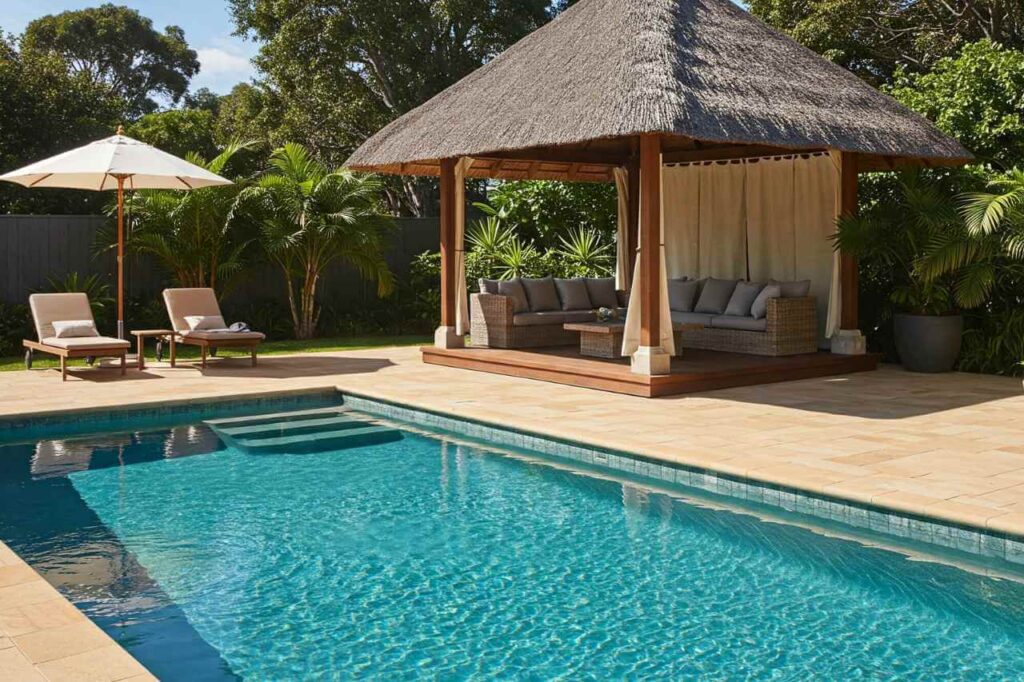
Fibreglass pools are built in layers. First, fibreglass mat and resin are placed in a mould, then cured for strength. A top gelcoat layer protects the surface from UV and saltwater.
Good manufacturers pressure-test each shell to check it can handle ground movement and water pressure. Knowing how your pool is made helps you understand its durability and performance.
Local Manufacturer or Interstate Supplier?
A local Sunshine Coast manufacturer or South East Queensland supplier is usually the best choice. You’ll get faster delivery, easier service and clear after-sales support.
Interstate or imported shells may arrive damaged or have confusing warranty terms. Always check your supplier’s QBCC licence, ABN and insurance, and if possible, visit the factory or view local samples.
Prefer local quality and faster delivery? Choose our Sunshine Coast team for fibreglass plunge pool installations backed by QBCC standards and full warranty support.
Why Installation Quality Matters
Even the strongest fibreglass pool can fail if it’s not installed properly. The way your pool is installed decides how long it lasts and how it looks.
Your installer should manage the whole process, including excavation, plumbing, drainage and backfill, while following local safety-barrier rules. A correct installation keeps your pool level, safe and free from cracks for many years.
Best Pool Shapes for Small or Sloped Sunshine Coast Blocks
Compact fibreglass plunge pools with built-in seats or steps are perfect for small or sloped Sunshine Coast backyards. They suit suburbs like Buderim, Noosa and Peregian where block sizes are often narrow.
Smaller pools also use less water and power, making them a great choice for energy-efficient, coastal living.
Preventing Osmosis and Surface Damage
Osmosis happens when water seeps under the gelcoat, creating small blisters. To stop this, choose a pool made with marine-grade gelcoat and sealed properly during manufacturing.
Keep your pool’s pH balanced, inspect it regularly, and use quality coatings. Homes near the coast or in high water-table areas should also include a hydrostatic valve to manage underground pressure.
Understanding Warranties and Inclusions
Reliable fibreglass plunge pools include three main warranties:
- Shell: 25–35 years
- Structure: 7–10 years
- Workmanship: 2–5 years
Always read the fine print to know what’s included. Ask for written details about extras like crane hire, fencing and electrical work. A trustworthy company provides clear pricing, full inclusions and long-term after-sales care.
Site Factors to Consider on the Sunshine Coast
Sunshine Coast properties often have sandy soils, slopes and high water tables that affect pool installation.
Your builder should inspect drainage, fencing and stormwater systems before work begins. Some homes may also need council permits for access or retaining walls. Planning early helps avoid costly delays.
Reviews, Case Studies and Local Proof
Before choosing a builder, read customer reviews and look at real case studies. Reliable companies will happily share completed projects in Sunshine Coast suburbs.
Look for feedback that mentions suburb names, pool types and service quality. You can even ask to visit a finished pool to check workmanship in person.
Red Flags When Comparing Pool Quotes
Watch for quotes that seem too cheap or miss key details. Common warning signs include vague pricing, pushy sales tactics or unclear warranty terms.
A fair quote lists all inclusions such as excavation, delivery, plumbing and site cleanup. Always compare side by side to make sure you’re getting real value.
☀️ Checklist — Questions to Ask Before Paying a Deposit
✔ Is the installer licensed and insured?
✔ Have they inspected the site and soil?
✔ What exactly does the warranty cover?
✔ Are all inclusions listed clearly in writing?
✔ When will delivery and installation happen?
Keep this simple Sunshine Coast plunge pool checklist handy — it’ll help you make a smart and stress-free purchase.
Conclusion
Buying a fibreglass plunge pool on the Sunshine Coast is an exciting step, but it pays to do your homework. Focus on proven quality, proper installation and clear warranties.
At Plunge Pools Sunshine Coast, we’re here to make the process easy, from design and installation to after-care and maintenance. With the right preparation, your new plunge pool will be a beautiful, long-lasting feature that adds real value to your home and lifestyle.
Ready to build? Contact us today for fibreglass plunge pool installations that combine safety, style, and long-term durability for Sunshine Coast homes.
FAQs
How long does it actually take to install a fibreglass plunge pool on the Sunshine Coast, from delivery to swimming?
Most fibreglass plunge pool installations on the Sunshine Coast take around 7 to 14 days once the shell is delivered. The process includes excavation, plumbing, backfilling and final setup. Weather, site access and council inspections can extend the timeframe slightly, but fibreglass pools are generally much quicker to install than concrete ones.
What kind of maintenance routine does a fibreglass plunge pool need in coastal or humid conditions?
A fibreglass plunge pool needs simple, regular care to stay in top shape. Keep the pH level balanced, clean the filter weekly and brush the walls to prevent buildup. In coastal or humid areas, rinse salt residue from the waterline and check the gelcoat finish every few months to maintain its shine and durability.
Can fibreglass plunge pools be customised in shape, size, or colour for Sunshine Coast homes?
Yes, modern fibreglass plunge pools come in a wide range of shapes, sizes and colours to suit different Sunshine Coast backyards. You can choose compact designs for narrow spaces or deeper models for exercise and relaxation. Some manufacturers also offer custom gelcoat finishes, steps and bench seating layouts to match your home’s style.
How do local council approval and permit timelines differ between Sunshine Coast suburbs?
Council approval timelines vary by suburb, but most Sunshine Coast pool permits take 2 to 4 weeks to process. Each council checks zoning, fencing and drainage requirements before granting approval. Working with a licensed local builder helps speed up the process because they know the regional rules and documentation needed.
What are the financing or payment options available when buying a fibreglass plunge pool?
Many Sunshine Coast pool companies offer flexible payment plans or financing through partnered lenders. Homeowners can often pay in stages — such as deposit, delivery and final installation — to spread costs out. Some lenders also provide low-interest home improvement loans specifically for pool projects.
How does a fibreglass plunge pool compare to concrete or precast concrete options for Sunshine Coast weather and soil?
Fibreglass plunge pools are ideal for Sunshine Coast conditions because they resist saltwater corrosion, shift less in sandy soils and need less maintenance than concrete. Concrete pools can be customised more but usually take longer to build and are more prone to cracking in coastal environments. For most homeowners, fibreglass offers the best balance of strength, flexibility and value.

